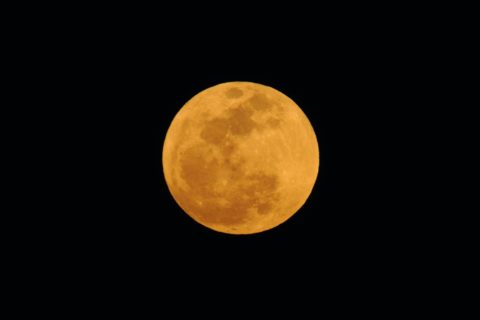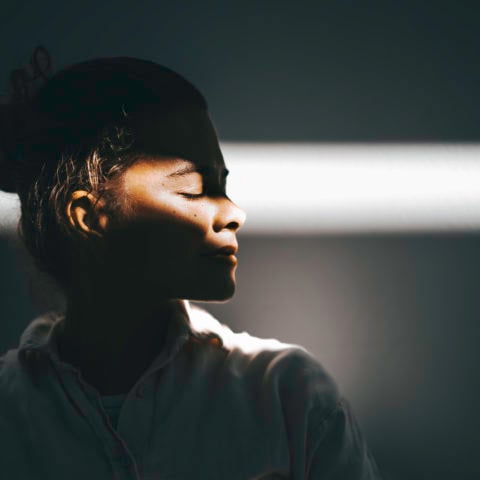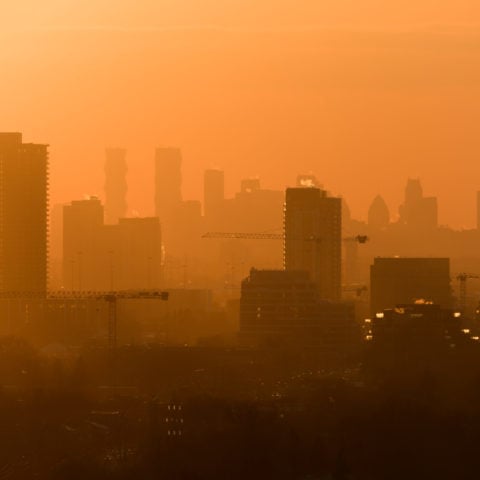How the Moon Affects Your Health

The last week has been intense, to say the least. Hope for the first female president was shattered, along with the hopes for an American leader who values equality, acceptance and compassion. We also lost a few big names in music—’70s rockstar Leon Russell and, of course, our beloved Canadian legend Leonard Cohen. So if you’ve been feeling a little off, these events are obviously to blame. But there could be another phenomenon at play, too: November’s supermoon.
Early today (November 14th), we experienced a very rare lunar event. Vancouver-based astronomer Derek Kief explains: “It was the closest full moon we have had since 1948 and the closest it will be until 2034.” Other than the moon looking larger, brighter and more beautiful than usual, the moon’s close proximity to the earth had a substantial effect on the tides. “There is a tidal effect from this rare supermoon. Because the moon is closer to the Earth (about 50,000 km closer), the tides are more extreme than usual. The difference in heights of tides is usually in the range of a few centimetres up on high tide and down on low tide,” says Kief. Canadian astrologer Aerin Fogel explains that as the tides shift, so too do the fluids in our bodies, causing changes in our well-being. “If we think of the moon’s impact on the tides, this is a very simple way to understand its impact on our bodies,” she says. “We are composed of nearly 60 per cent water, and so the cycles of the moon impact our bodies directly.”
Another way experts explain the impact of the moon on our health comes down to fluctuations in light, says Fogel. “The full moon always has a noticeable impact because it is the time when the moon reflects the most light.” According to naturopathic doctor Laura Brass, the brightness of the moon would be even more effective if we weren’t exposed to quite as much artificial light in our daily lives. “If we all went back to pre-industrial times when we woke with the sun and went to sleep with the moon, matching our body clocks to the daily cycles of the moon, I think we would see more changes in behaviour and wellness in accordance with the lunar calendar,” she says. But despite the interference of modern technology, she says the moon-health connection is alive and well, even if we don’t always know it. “As a wellness expert, I still believe our health is interlinked with the lunar calendar,” she says.
So, did November’s super-special supermoon actually make us feel any different? Read on to find out!
Not sleeping?
Toronto-based naturopathic doctor Mary Choi says, “The full moon may contribute to fatigue and a restless sleep in the days surrounding it.” One set of tests proved that there is a reduction in melatonin (the sleep hormone) during the full moon. Choi sites another recent study in Current Biology to further support her theory. “It found that when the moon was at its brightest, it took approximately five minutes longer to fall asleep, the total duration of sleep time was reduced by 20 minutes and sleep quality was not as deep.” Unfortunately, according to this study, even your silky eye masks won’t save you: These results were unaffected by whether the participants were aware of or exposed to the brightness of the moon.
Unexpectedly teary?
Feeling a little more sensitive than usual? Instead of blaming your period (can we stop doing that yet?), the moon’s schedule might be worth considering. The emotional impact of the moon is nothing new—the term “lunatic” comes from the Latin word “Lunaticus,” which means “moonstruck.” Fogel agrees there is a definite connection. The Toronto astrologer explains that the illumination of the moon can have a very literal impact on our psyche. “Things brewing under the surface can sometimes become more exposed or obvious during a full moon.” So, even when personal dramas or upsetting emotions seem to come out of nowhere, it could be that you couldn’t see the issue until it was under the light of the full moon. “The full moon is the most intense point in the moon cycle,” says Fogel. “So our experiences often become intensified, too, or even a bit out of control, depending on other factors.” Choi agrees: “Currently the thought is that the full moon brings out crazed, erratic and psychotic behavior, increasing emergency room visits, labour and births, and traffic accidents.” Believe it or not, ER docs recently told the Wall Street Journal that they increase their staff when they know a full moon is coming.
Back to your period tho
It turns out there could be a pretty strong connection between our hormonal cycles and the lunar cycle. “The moon’s 29.5-day cycle mirrors a woman’s ‘typical’ menstrual cycles of 28 to 30 days,” explains Choi. Research shows that these compatible patterns are not a coincidence. One study found that 30 per cent more women had their periods during a full moon, while other studies show fertility significantly increases when the moon is at its darkest, i.e. a new moon. If your cycle is totally not synced with the lunar calendar, don’t feel left out. Brass reiterates the impact of our bright world. “If we rewind to when we were living together in tribes in tents under the moon and stars with no exposure to artificial light, I definitely think women would all be having their menstrual periods in unison and would be cycling with the moon.” But despite the artificial interference, Brass believes exposure to the moon could help with hormonal issues. “I often advise my patients with menstrual irregularities to start exposing themselves to moonlight during the full moon to help induce ovulation and regulate their cycles.”








